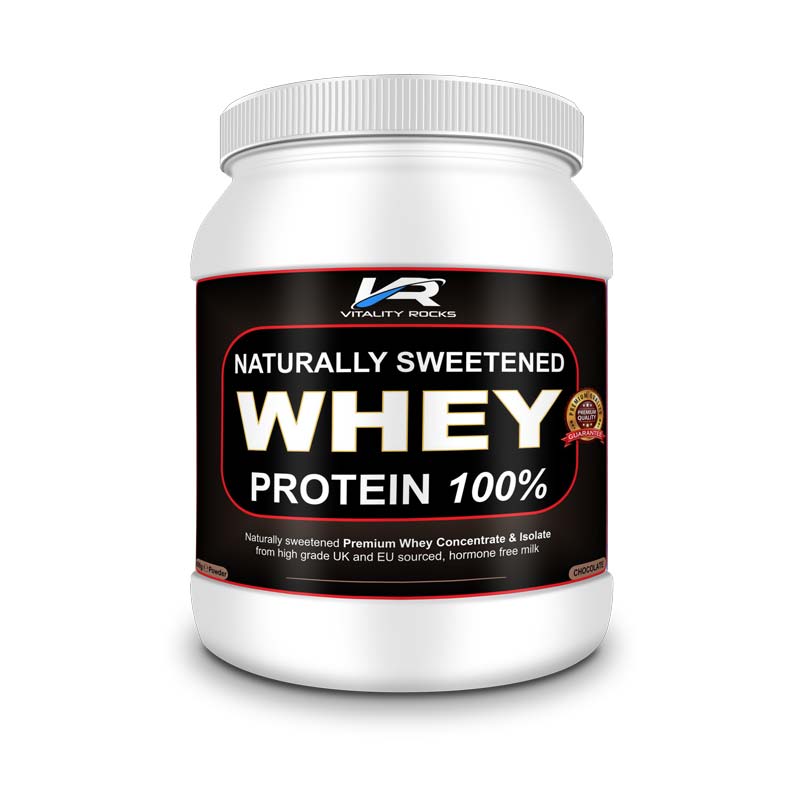How Protein Helps You
How does protein help the body?
Protein is generally seen to be important by many - after all, it's in most meals whether they be vegetarian, vegan, or meat/fish-based.
However, the body can often benefit from a higher protein intake than one might get solely through eating meals.
The health benefits you can get from things like reducing the amount of sugar you eat cannot be understated, but is protein something you're getting enough of? It can help the body more than you might think!
There are a number of benefits that can result from a higher intake of protein, and we will be exploring this and more in today's article!
 1. What is protein and why is it important?
1. What is protein and why is it important?
There are many reasons for which protein is important that you might not be aware of. In order to start explaining this in more detail, it's worth going into what proteins actually are and the role that they play.
Proteins are often referred to as "building blocks" for the body, and are comprised of small compounds known as amino acids. Each amino acid has its own role to play in aiding or enhancing the body.
These amino acids are linked together in "chains", resulting in the complex molecule we know as "protein". Each chain can be formed with different sequences of amino acids - the type of sequence makes one protein molecule different from the next and in doing so, each protein provides a different function within the body.
2. How protein benefits the body
So we've established that protein plays an important role in the body, by using chains of amino acids to achieve different results. But at a high level, what does that mean for someone looking to make use of protein supplementation? What benefits can it offer them?
There are a number of benefits that protein can provide, including:
- Weight loss, as protein can help keep you full and reduce cravings
- Used as a resource by the body to repair broken tissue
- Similarly, due to its ability to repair, it can speed up post-exercise recovery
- Used for muscle growth, which can help you to stay fit and active
While the above is not an exhaustive list, it's difficult to deny that protein provides some compelling benefits and is an essential nutrient for building and repairing aspects of the body. For best results, it may recommended that you use protein to supplement a healthy lifestyle coupled with exercise, but please consult with your GP prior to performing any strenuous activity.
3. Types of protein
Protein supplementation can be a fantastic way of aiding the body through enhancing its ability to repair tissue and provide muscle growth.
There are many different types of protein supplement in today's market, and it can be confusing to know which is right for you. Of course, there is some element of personal preference involved, but we will try our best to shed some light on the different types and in doing so, hopefully help you to arrive at your own decision.
Possibly the most popular type of protein today is stevia whey protein - this protein is popular among fitness-minded individuals and those looking to enhance their muscle growth. Most whey protein compositions use a 50:50 ratio of whey concentrate and whey isolate, which provides a great balance between price and performance. They also generally have a rich flavour to them, as they are typically sweetened with either artificial or natural sweetener. However, it's important to note that whey is dairy-based, making it unsuitable for those who are lactose intolerant.
So what can you do if you're unable to consume dairy products? Well, there are fortunately other options available to you!
Hemp protein is one option - it's dairy free/gluten-free and sometimes contains superfoods that can provide substantial nutritional benefits. The Vitality Rocks blend, for example, contains blackcurrant containing "3 times the Vitamin C of oranges"! Hemp proteins can sometimes have an earthier flavour profile (unsweetened), which is quite different to how whey protein tastes. Ultimately, whether or not this is a deal breaker comes down to personal preference.
Another dairy-free option is rice protein - this is similar to hemp protein in that they are both dairy-free and gluten-free, but some may find the flavour profile more to their liking, as some blends are sweetened with stevia, a natural sweetener extracted from the stevia plant.
4. Final thoughts
Whichever protein supplement you go for, it's important to find one which contains a complete amino acid profile for maximum coverage. All of the above links all lead to protein supplements which contain this complete profile.
It's also important to watch out for protein supplements which contain artificial sweetener such as sucralose. If artificial sweetener concerns you, then you may wish to stick to those containing natural alternatives (see above links).
Hopefully this article has helped you to see the benefits that protein offers, and to make an informed decision about whether protein supplementation is right for you!
